Introduction
In the world of interior design and architecture, the integration of technology has paved the way for innovative and captivating solutions. One such revolutionary concept is the utilisation of smart glass to create spaces that not only evoke awe but also offer enhanced functionality. The marriage of design and technology has given rise to a new era of interiors where light takes centre stage, transforming spaces in ways previously unimaginable. In this blog, we will delve into the captivating world of smart glass, exploring its various applications, benefits, and the seamless fusion of art and functionality it brings forth.
Understanding Smart Glass
Smart glass, also known as switchable glass or privacy glass, is a technologically advanced material that can alter its transparency properties in response to external stimuli. This transformative ability can be triggered by various mechanisms, including electricity, light, or heat. In its opaque state, smart glass provides privacy, sound insulation, and energy efficiency. When switched to a transparent state, it offers unobstructed views and maximises natural light utilisation.
The Artistry of Illumination
Imagine walking into a room suffused with soft, diffused light that changes hues like a living canvas. Smart glass turns this artistic vision into reality. Its ability to control light not only impacts the aesthetics but also influences the emotional response to the environment. Designers now have the power to orchestrate light and shadow, crafting an atmosphere that resonates with the purpose of the space.
Applications Across Industries
Residential Marvels
Smart glass is redefining modern living spaces. From bathroom partitions that turn opaque for privacy to skylights that adjust their tint to regulate sunlight, homeowners are embracing the elegance and functionality smart glass offers.
Commercial Brilliance
In corporate settings, smart glass partitions create versatile spaces, ensuring privacy for meetings while maintaining an open feel. Additionally, storefronts can transition from opaque to transparent, inviting passersby to explore the interior.
Healthcare and Wellness
The healthcare sector benefits from the hygienic properties of smart glass. It is used in sterile environments to provide visibility while maintaining a contamination-free zone.
Hospitality Elegance
Luxury hotels use smart glass to redefine opulence. Imagine bathrooms with glass walls that turn opaque at a touch or windows that frame breathtaking views with a mere flick of a switch.
The Science Behind the Magic
The technology that enables smart glass to switch between states is a result of liquid crystal molecules or suspended particle devices. The application of an electric field to these materials changes their alignment, either allowing light to pass through or scattering it.
Advantages of Smart Glass
The integration of smart glass brings forth a plethora of benefits. Enhanced privacy, improved energy efficiency, dynamic aesthetics, and the elimination of the need for traditional window treatments are just a few examples.
Design Freedom Unleashed
Designers are no longer confined by static spaces. Smart glass enables them to create multifunctional areas that can adapt to various needs, making the most of available space without compromising on style.
Creating Dynamic Environments
The ability to alter the transparency of glass offers opportunities to create dynamic environments that evolve throughout the day. Imagine an office space that adjusts its lighting and privacy levels based on the time of day.
Elevating Energy Efficiency
Smart glass contributes to energy conservation by reducing the need for artificial lighting and climate control. It maximises natural light while minimising heat transfer, thus decreasing reliance on heating and cooling systems.
Challenges and Considerations
Cost and Investment
While the benefits are remarkable, the initial cost of installing smart glass can be higher than traditional glass. However, the long-term energy savings and enhanced user experience often justify the investment.
Privacy and Control
Maintaining privacy is essential, especially in residential settings. Smart glass systems must ensure seamless control over transparency, striking a balance between openness and seclusion.
Future Innovations
The future holds exciting possibilities for smart glass. Advancements in nanotechnology, integration with smart home systems, and the incorporation of augmented reality are just some of the avenues being explored.
The Role of Smart Glass in Sustainable Design
Smart glass aligns with the principles of sustainable design by reducing energy consumption and enhancing occupant comfort. It exemplifies the marriage of technology and environmental consciousness.
Inspiring Architectural Achievements
Architects are pushing boundaries with smart glass. From buildings that seem to disappear into their surroundings to facades that respond dynamically to sunlight, smart glass is redefining architecture.
Unlocking Creativity with Smart Glass
Designers and architects are discovering novel ways to incorporate smart glass into their projects. It’s not just a material; it’s a tool that empowers creators to bring their visions to life.
Conclusion
The realm of design has witnessed a remarkable transformation with the advent of smart glass. Beyond its technological marvel, smart glass is a canvas for creativity, an instrument of functionality, and a conduit of ambiance. As we continue to explore the endless possibilities it offers, one thing is certain: the art of designing with light has reached an unprecedented pinnacle.
Who We Are
Tecdur is the leading manufacturer of smart glass for the UK and Ireland. Tecdur Switchable Glass provides the best clarity, lowest power consumption and lowest haze currently available. We can offer a wide range of specifications to meet project requirements with our switchable glass, cost is dependent on specification, application and design. Please get in contact with us to discuss further.
Please visit our portfolio for a look at completed projects. Keep up to date on our LinkedIn Showcase page

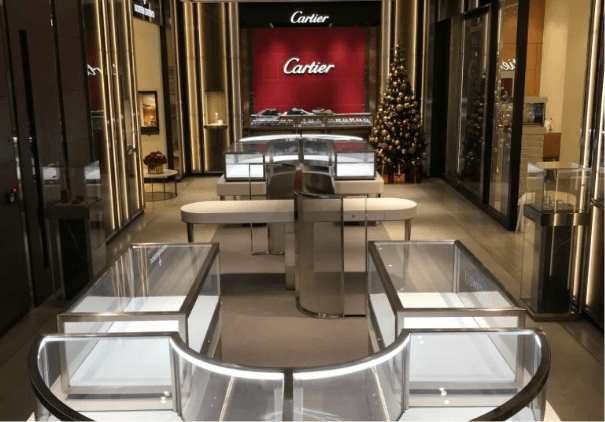
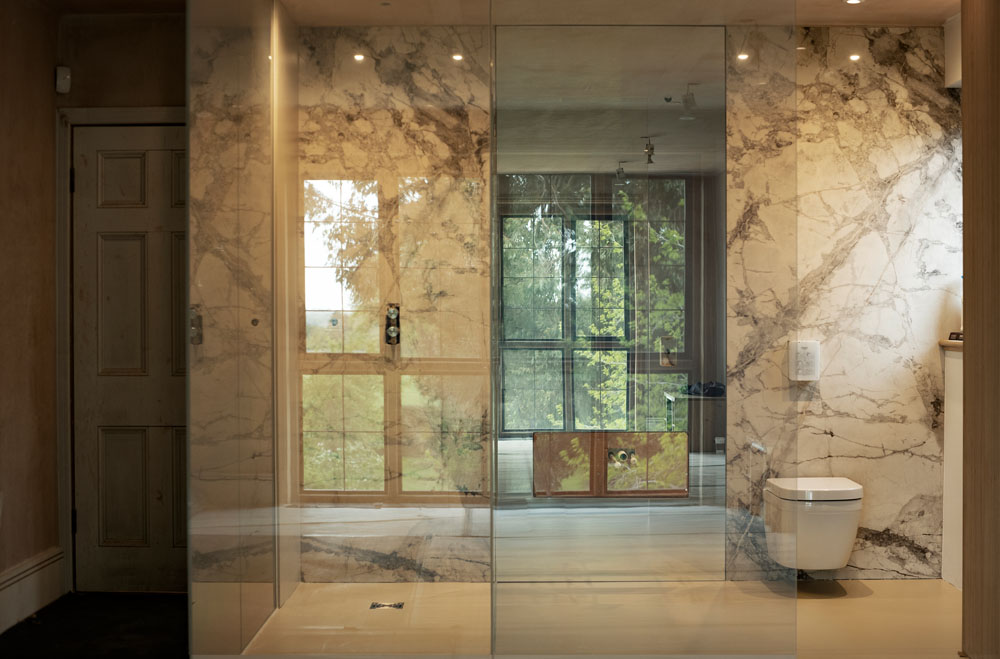
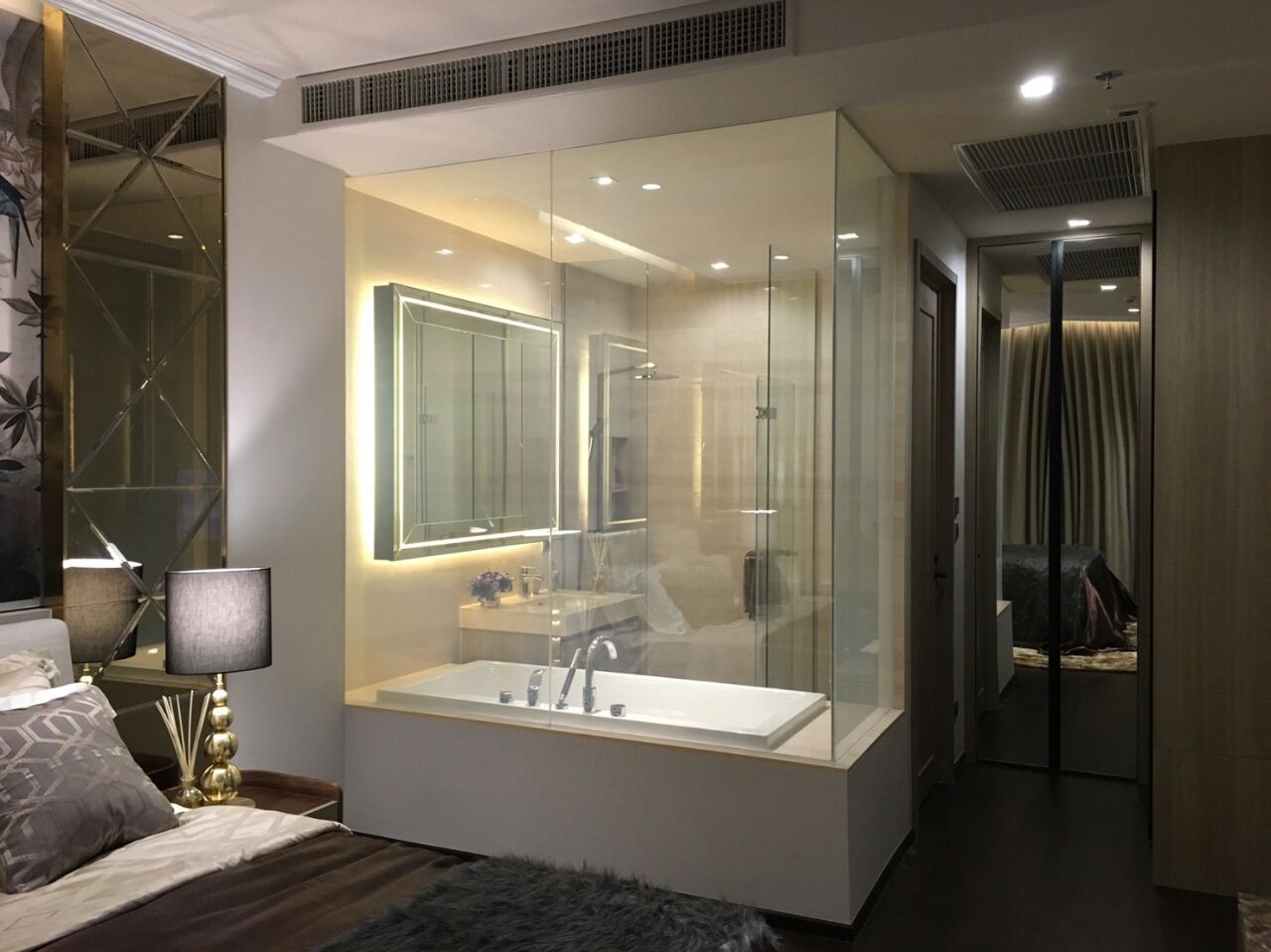
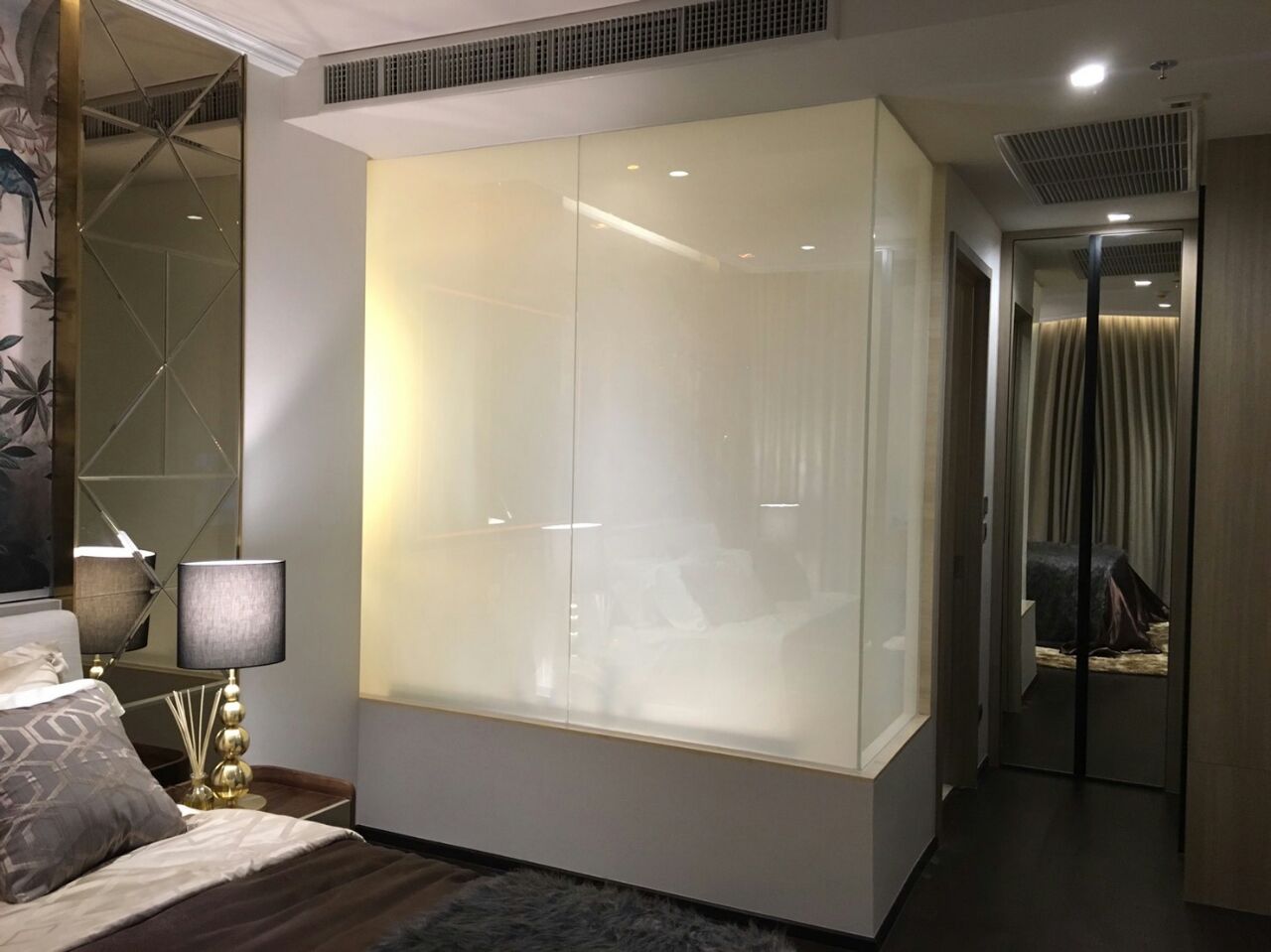
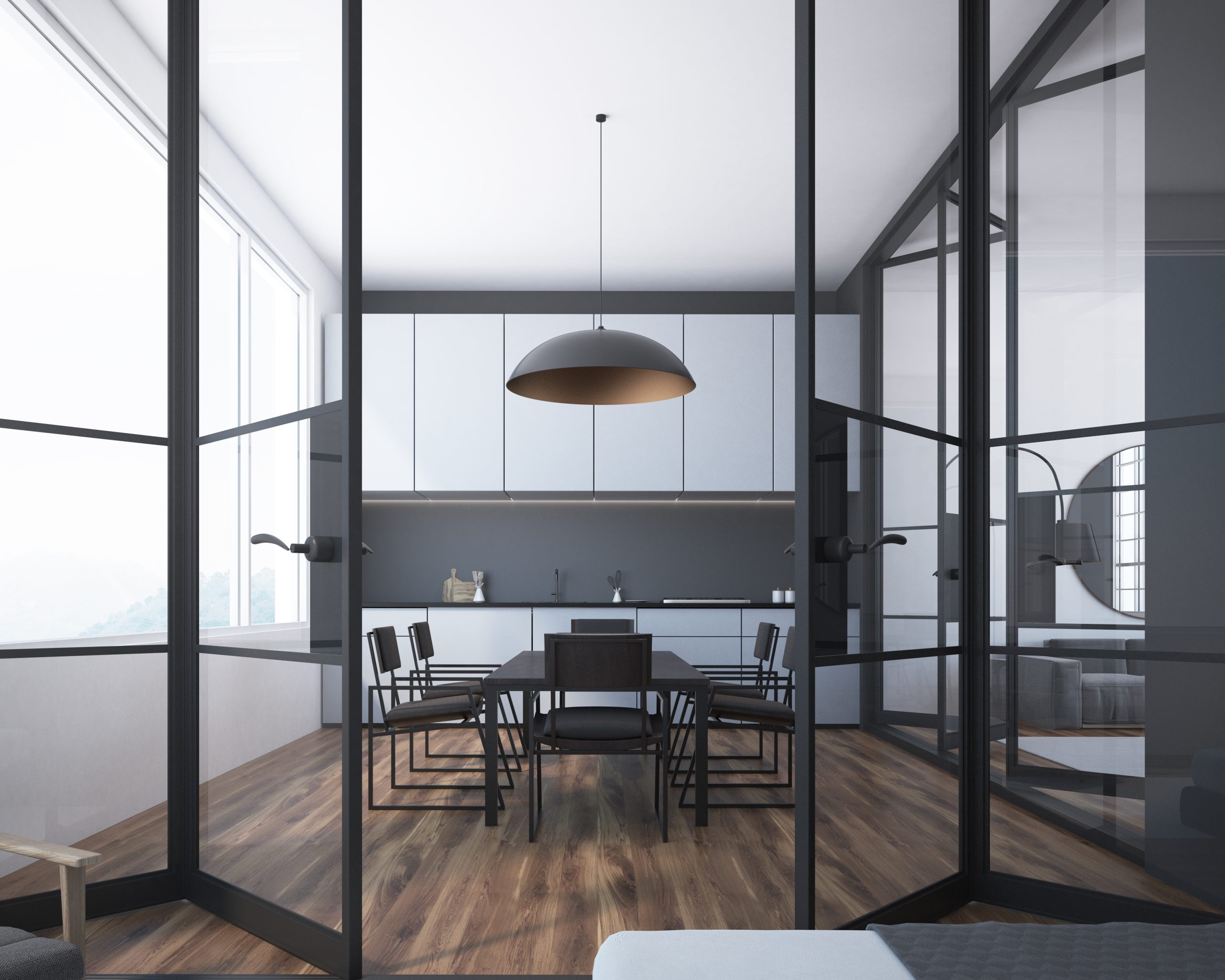
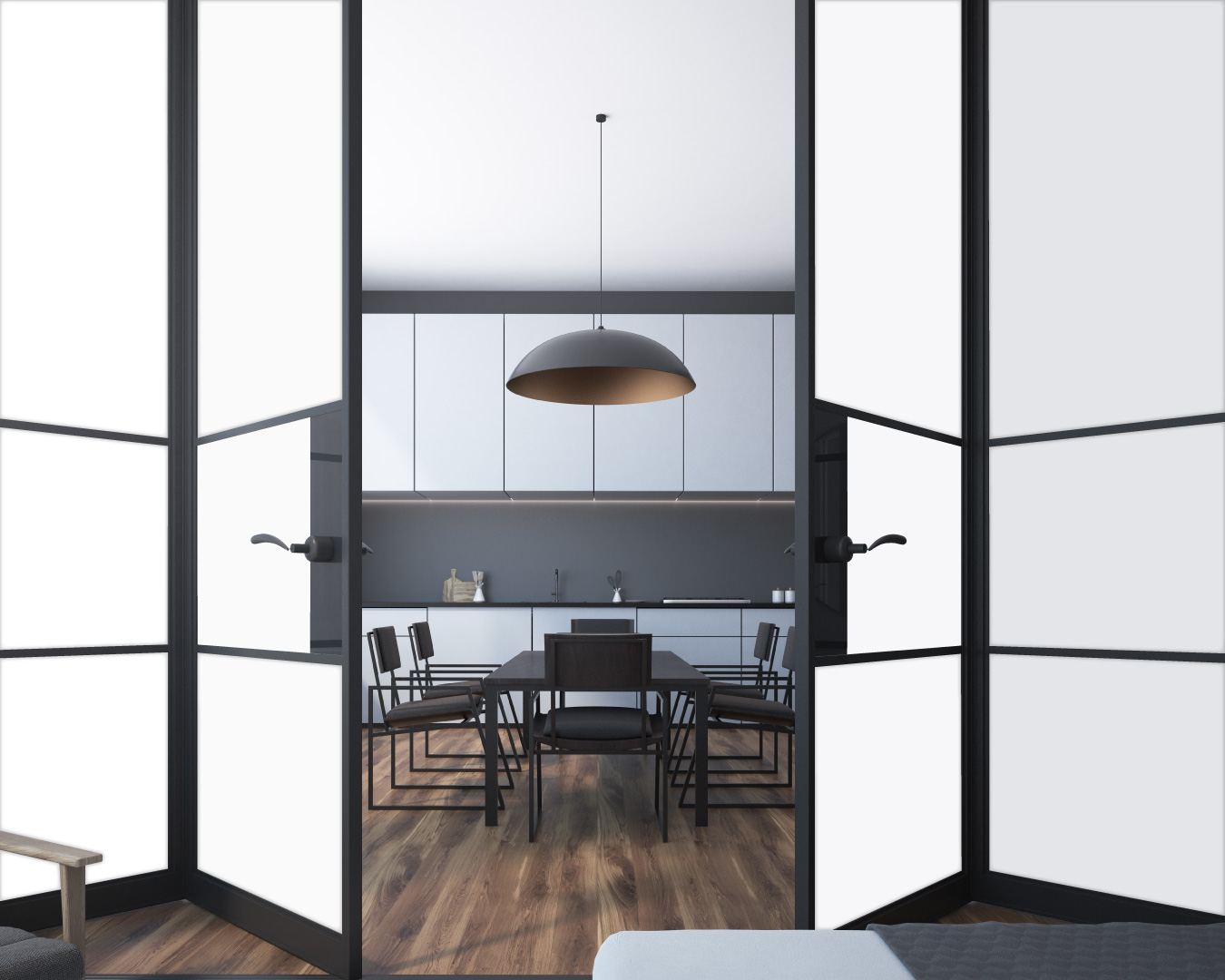
Frequently asked Questions
Our privacy glass works by utilising advanced PDLC (Polymer Dispersed Liquid Crystal) film. When an electrical current is applied, the liquid crystal molecules align, allowing light to pass through, making the glass transparent. When the current is switched off, the molecules mis-align, causing the glass to turn opaque or translucent, providing privacy.
While the initial cost of installation may be higher, the long-term benefits, such as energy savings and enhanced aesthetics, often make the investment worthwhile.
Yes, smart glass can be retrofitted into existing structures, offering a modern upgrade to spaces without requiring extensive renovations.
Smart glass systems can be controlled through various means, such as remote controls, smartphone apps, or automatic sensors, allowing users to adjust the transparency and privacy levels as needed.
The lifespan of smart glass can vary depending on the manufacturer and usage. On average, it can last around 10 to 15 years or more with proper maintenance.
Smart glass relies on electricity or other external stimuli to change its transparency. In the event of a power outage or technical malfunction, the glass may remain in its current state until the issue is resolved.




